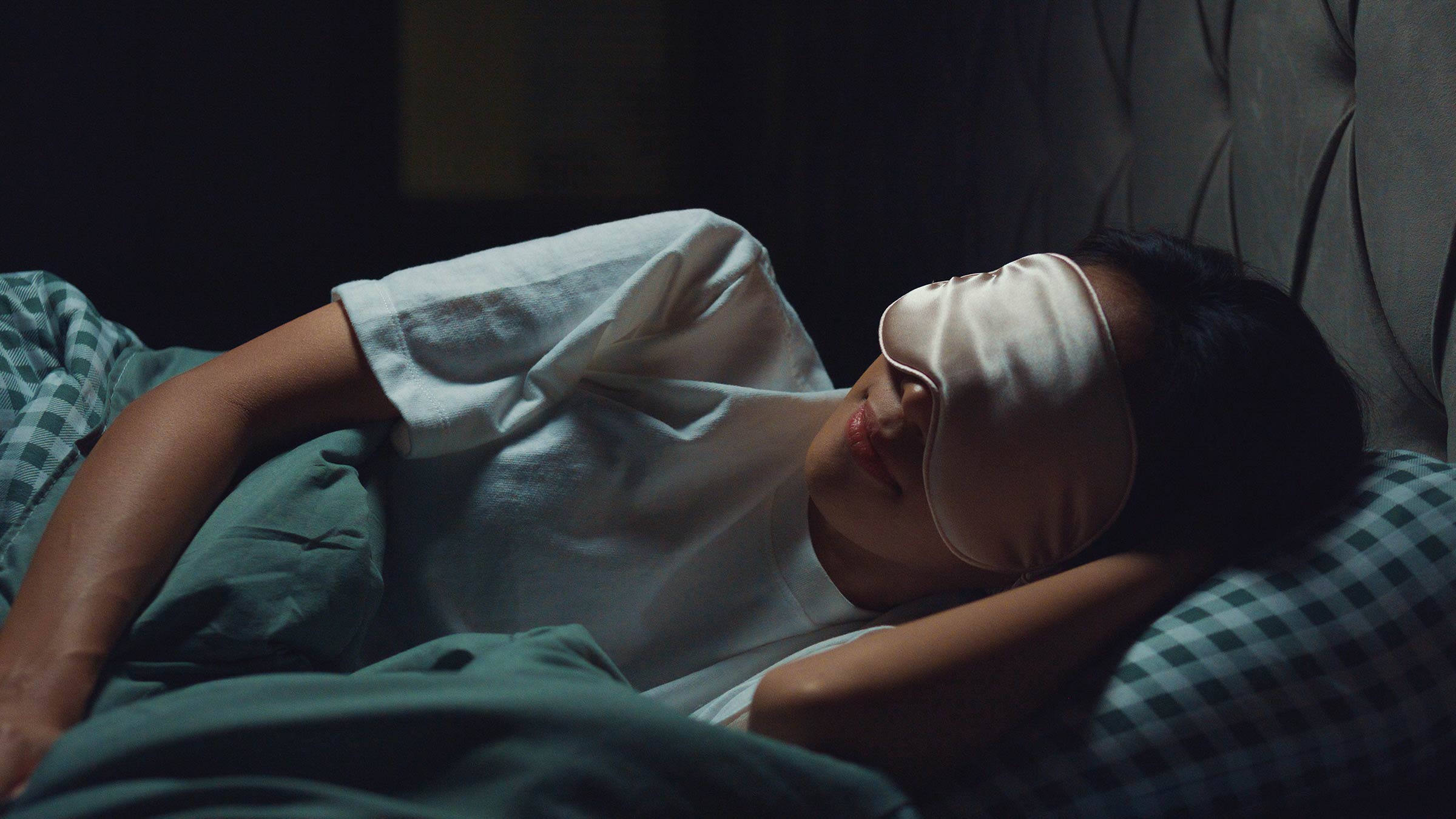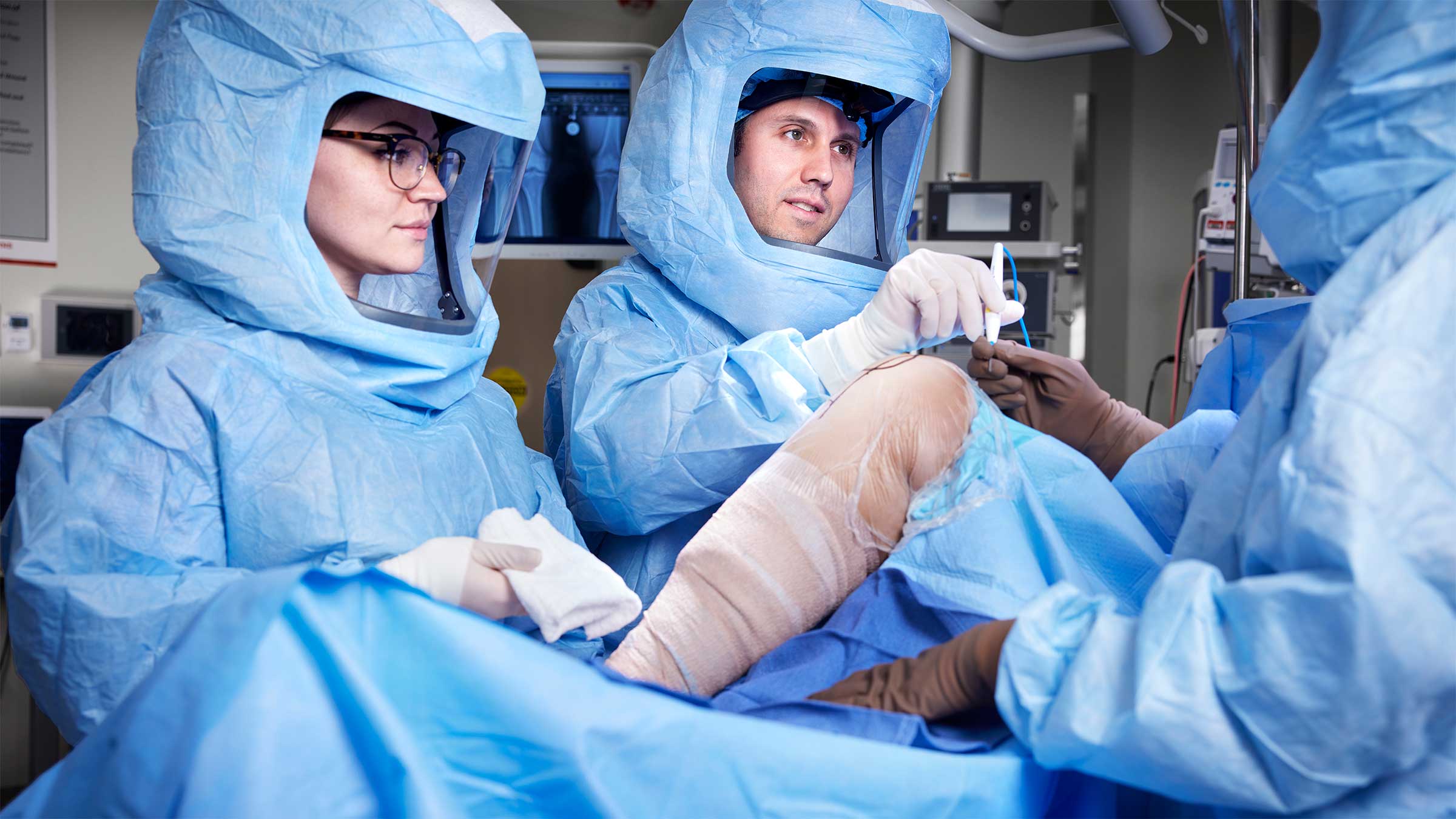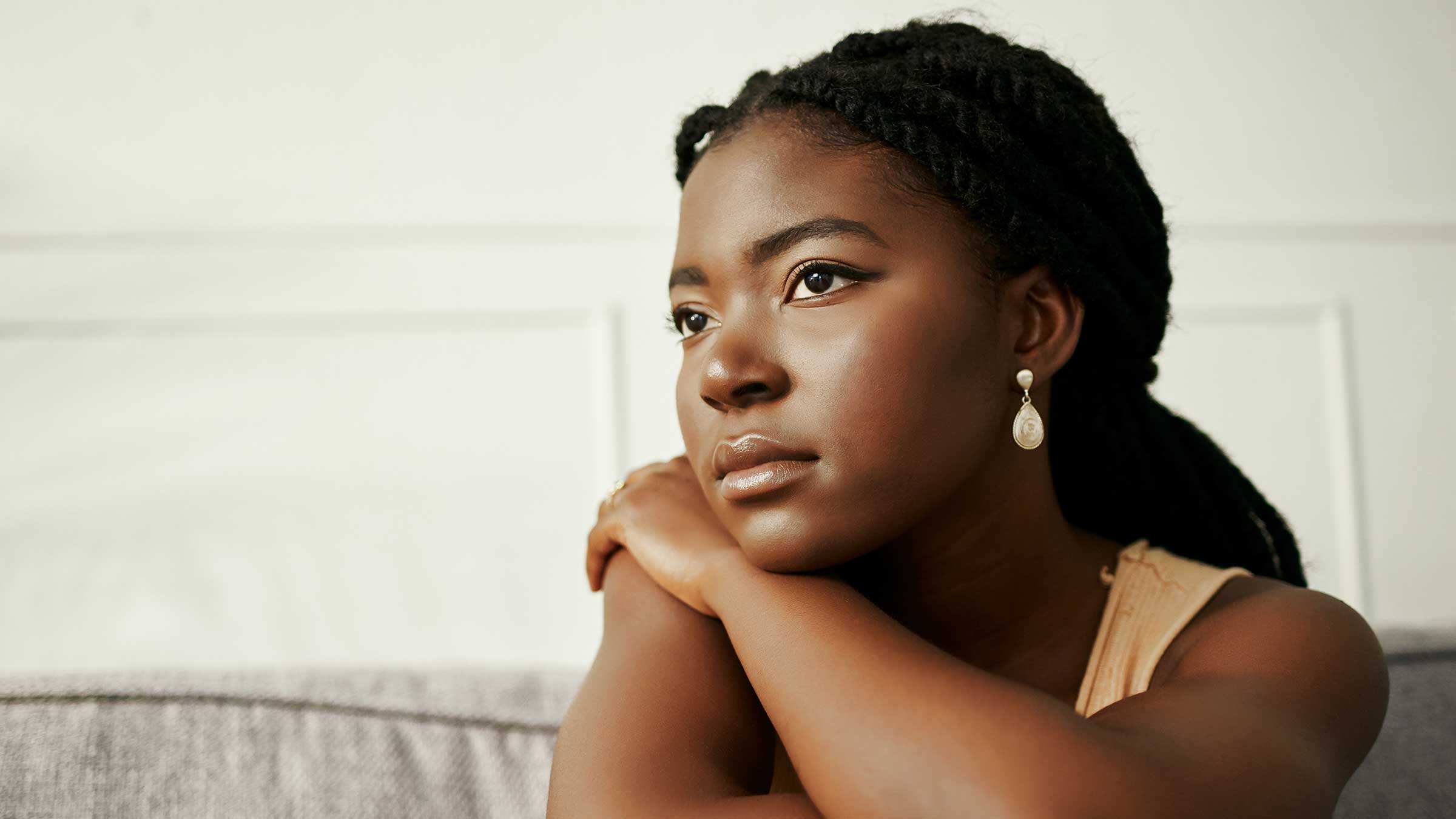
Some people sleep with their eyes a little bit open. They don’t mean to. It just happens night after night, and they’re likely not even aware of it.
Typically, if your eyes are open at night while you’re sleeping, it’s because your eyelids can’t close completely. They may only be open a crack — 1 to 2 mm — but it’s enough that you wake up with dry, red or itchy eyes.
Sleeping with eyes open can harm to your cornea
After years of having your eyes open while you sleep, a condition called nocturnal lagophthalmos, you can harm your cornea, the clear structure at the front of our eyes.
The cornea is incredibly sensitive. It needs to be lubricated with tears. When you’re awake, each time you blink, you spread tears across your corneas, keeping them moist. But at night, you don’t blink. So, if your eyes aren’t shut completely, an area of your cornea is exposed while you sleep and can dry out.
Signs you may be sleeping with your eyes partly open
My patients are often surprised to find out they sleep with their eyes not fully closed. How would they know unless a bed partner pointed it out?
It’s fairly common. I diagnose someone with the condition every couple of days.
You might sleep with your eyes partly open if you wake up in the morning and your eyes are:
- Dry
- Itchy
- Red
- Burn
- Irritated
These symptoms can also be caused by dry eye disease, which is when you don’t create enough tears to keep your corneas moist.
If you’re unsure what, if any, eye condition you have, you can ask your optometrist during a routine exam, to check your eyes for signs that they stay partly open when you sleep. By examining the cornea and watching you blink, an optometrist can tell whether you fully close your eyes at night.
Why some people sleep with their eyes open
Usually if your eyelids stay partly open when you sleep, it’s because aging can cause your eyelids to droop. As a result, sometimes when you close your eyes, your eyelids don’t have the elasticity they once had to stay completely close. This can be a normal part of aging.
However, sometimes sleeping with your eyes open is a sign of an underlying condition.
Disorders that can cause you to sleep with your eyes open
- Sleep apnea — Most people with sleep apnea don’t sleep with their eyes partly open, but some do.
- Thyroid eye disease — This autoimmune disorder can affect the muscles and fat behind your eyes and cause your eyes to protrude forward. As a result, your eyelids can’t blink over your eyes as well.
- Bell's palsy — This condition causes the facial nerves on one side of your face to become temporarily paralyzed. It affects the muscles that close your eyes.
- Stroke — When you have a stroke, damage to nerves in your face might prevent you from being able to fully close your eyes when you sleep.
Sometimes surgery on your eyelids can keep you from fully closing your eyes when you sleep. If you have eyelid surgery to get rid of excess skin on your upper eyelids, your eyelids can become so tight they can’t fully cover your eyes when you sleep.
Tips if you sleep with your eyes open
If you sleep with your eyes partly open, you can try using:
- Over-the-counter lubricant: Before you go to bed, apply an over-the-counter thick layer of lubricant to your eyes. It could be artificial tears or a type of lubricating gel that can stay on your eyes overnight protecting them from being exposed.
- Sleep mask: Wearing a sleep mask, ideally made of silk, can put a little bit of pressure on your eyelids to help keep them closed and prevent them from getting too dry overnight.
- Humidifier: This will help add moisture to the air while you sleep so the part of your eyes that’s not covered by your eyelids doesn’t dry out.
When you sleep, avoid having a fan blowing on your face because that can dry your eyes.
Most of the time taking these steps and using over-the-counter lubricants on your eyes will keep you from having lasting eye damage.
When children sleep with their eyes partly open
Children can also experience sleeping without fully shutting their eyes, but it’s less common than in adults. Children usually don’t have symptoms or problems with this, although they can use the same remedies as adults if they develop symptoms of eye irritation.
Surgery to keep your eyes fully closed when you sleep
If you have an underlying condition that’s keeping your eyes from fully closing when you sleep, a surgery can be done to help your eyes stay closed. A surgeon can insert tiny pieces of metal, typically gold, into your eyelids to weigh them down so they’re more likely to shut fully.
The vast majority of people who sleep with their eyes partly open won’t ever need surgery because they have only minor symptoms, and those symptoms don’t keep them from getting good quality sleep.

Great vision starts here
Ohio State's optometry clinics provide world-class eye care for your entire family.
Schedule an appointment




